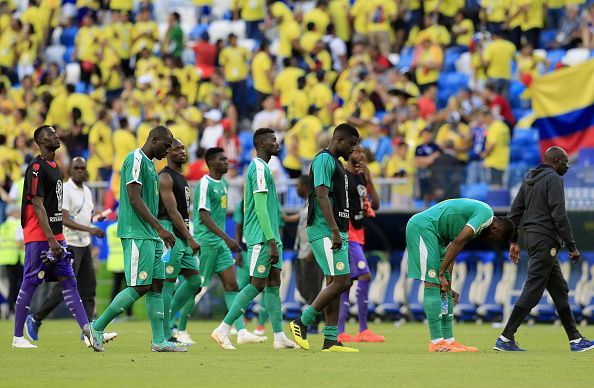By Andrew Warshaw
June 29 – Over a generation has gone by since Pele famously predicted than an African team would win the World Cup by the year 2000. But if anything African football, which has long been clamouring for more World Cup slots, has gone backwards.
When South Africa hosted eight years ago, it was supposed to represent a brave new dawn for the continent. But Senegal’s elimination on fair play rules on Wednesday meant there is no African team in the tournament’s second round for the first time in 36 years. A pretty damning statistic if ever there was one.
In terms of style and entertainment value, you could argue that Senegal and Nigeria were unlucky to go home. The tournament in Russia, top-heavy with European nations, is worse off for being without them
You could also argue that using the number of bookings to separate teams that have otherwise identical records is highly unsatisfactory from a footballing standpoint. How about, as one television punter put it, shots on goal? The way Japan played out time against Poland to ensure qualification was little short of disgraceful.
“Fair play points are one of the rules and these rules have been established in the tournament regulations. We have to respect that,” said Senegal boss Aliou Cisse. “We would have preferred to be eliminated in another way but that’s the way it works and we knew that those were the regulations. I’m just disappointed for my team, for this generation and for these players who fight every single day for our country.”
Yet the stark fact is none of the five African countries who headed to Russia were in the top 20 in FIFA’s rankings and in 15 games, the African teams managed just three wins despite a crop of stars that included Mohamed Salah and Sadio Mane.
Didier Drogba, who appeared at three World Cups with Ivory Coast, said African teams had taken a “big step back”.
“Africa is going to be successful one day but we need to think again how we approach these big competitions,” he told the BBC where he is working as a television pundit.
The only positive seems to be that the number of African teams will increase from five to nine in 2026 as the tournament expands to 48 countries in North America. But there is clearly a lot to do to buck the current trend.
“We have the potential, we have the money to develop, but we need more than that,” said Drogba. “We need to have the consistency and the structure of the European teams and the South American teams. We are going to be successful one day but we need to think again how we approach these big competitions.”
Contact the writer of this story at moc.l1751594798labto1751594798ofdlr1751594798owedi1751594798sni@w1751594798ahsra1751594798w.wer1751594798dna1751594798

